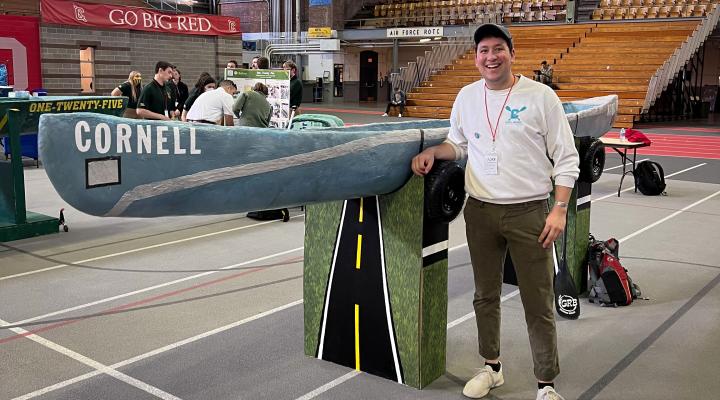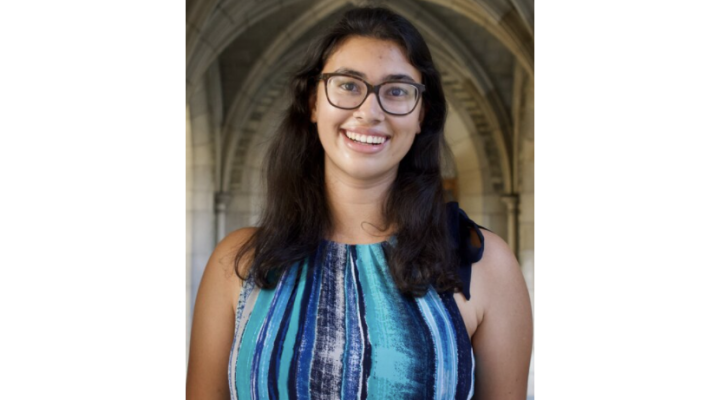What inspired you to pursue a degree in engineering?
When I was 10, my parents took me to a Superfund site in Montana known as the Berkeley Pit. Originally a copper mine, this site consisted of a toxic lake that threatened the water supply of the surrounding area. The water at the surface was a rust color and the water had a pH of about 2.5 (roughly the same as Coca Cola). The contrast between the natural beauty of the state and this contaminated lake was shocking, but I also learned about the plans to remediate the site and to treat the water. The idea that engineering could be used to protect the health and safety of both humans and the environment inspired me to pursue environmental engineering.
What drew you to Cornell CEE?
I chose Cornell CEE because the program had major academic and lifestyle benefits. First of all, I was extremely interested in the work of Dr. Damian Helbling and believed that he would be a good advisor for my MS and PhD. In addition, the recently renovated lab and cutting edge instrumentation make research easier and allow us more flexibility when we pursue projects that are based in chemistry. On the lifestyle side of things, the Helbling group is a great place to do research because everyone is passionate about their work but maintains a good work-life balance. Moreover, everyone gets along well, so classes and research are enjoyable. Finally, I appreciated the culture of the department and felt that Ithaca would be a great place to live. I enjoy hiking and exploring all of the activities that Ithaca has to offer.
Tell us about your current research, and how it supports the “Breaking the Rule” mentality.
I work in the Helbling research group on water quality issues that stem from unconventional shale gas extraction. When hydraulic fracturing is used, water is mixed with chemical additive and injected into the subsurface at high pressures. A portion of this water returns to the surface and contains the chemical additives, high levels of salts, and high levels of total dissolved solids. My research focuses on using analytical chemistry techniques such as high resolution liquid chromatography-mass spectrometry to analyze the organic compounds that are in this wastewater.
This is highly important because the chemical additives to hydraulic fracturing fluid can be used as "fingerprints" to determine if water sources nearby have been impacted by hydraulic fracturing operations. Many people are working on the water quality impacts of hydraulic fracturing at this point in time, but few are focusing on finding these chemicals in nearby water sources. The Helbling lab is in a good position to tackle this problem because we have a high resolution instrument that will allow us to detect these chemicals at extremely low concentrations.
Tell us about any awards you’ve received at Cornell.
I just started here in August, so I don't have any so far. But, I've got plenty of time left for that! I am a recipient of the NSF GRFP and a Udall Scholar.
What are some of your extra-curricular activities?
I am currently involved with the CEE Graduate Student Association as one of the Symposium Co-Chairs. I also act as an advisor to an Engineers Without Borders project.
What’s your favorite part about the CEE major?
I love hearing about work from all of the different CEE concentrations. There's such a broad span of topics and all of them are critical and have the potential to make an impact. In particular, the CEE Graduate Student Association hosts informal seminars and socials where you can hear about what's going on in the department and get to know students and professors that you wouldn't normally encounter.




